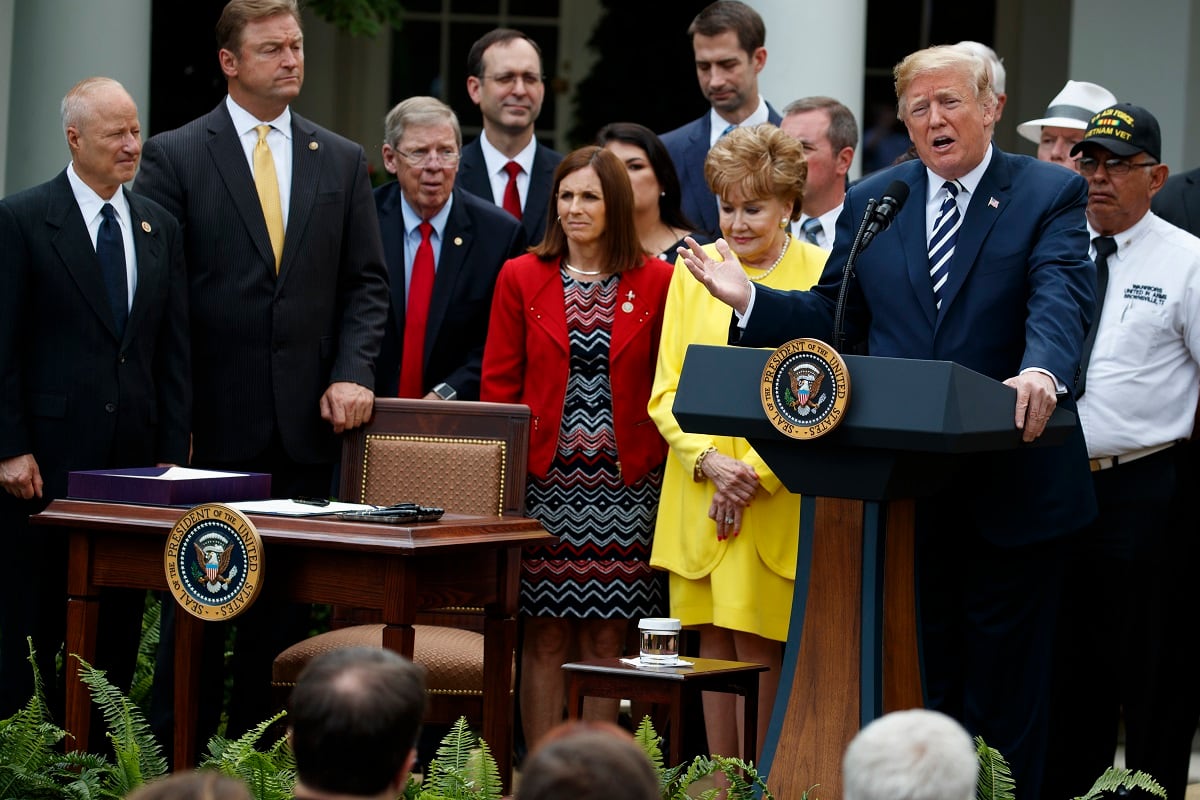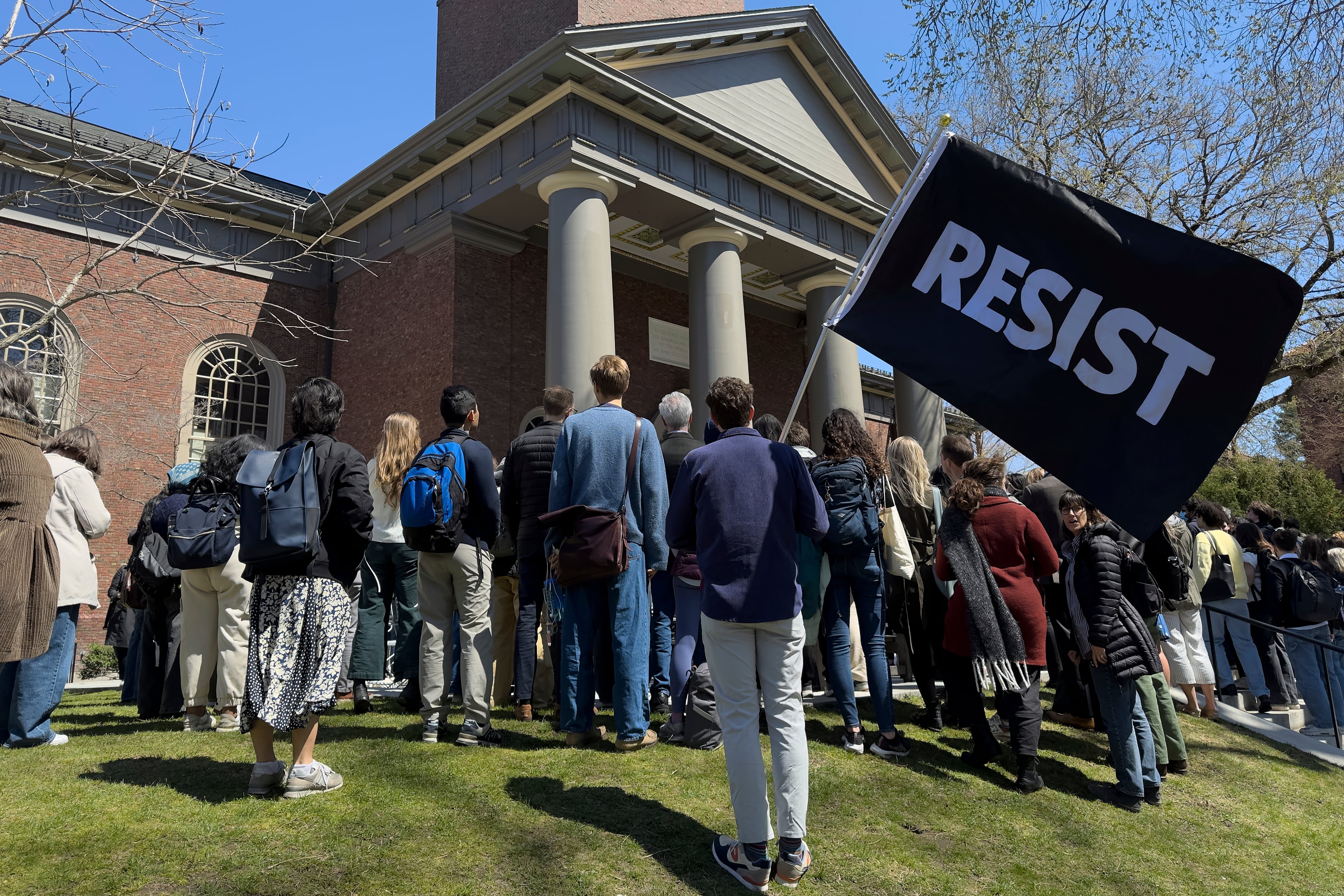WASHINGTON — Hours after praising a new veterans reform bill as a historic step forward for the country, President Donald Trump announced he intends to ignore significant sections of the legislation because he sees them as infringing on executive branch authority.
The move came just as Veterans Affairs officials issued a statement praising Congress and the White House for working together on the measure. Lawmakers said that administration officials have been repeatedly consulted through the process, and signed off on the bill language before it passed both chambers last month.
The $52-billion measure includes a sweeping overhaul of VA’s community care programs, an expansion of the veterans caregivers stipend program, and plans for a nationwide review of department facilities.
In a Rose Garden signing ceremony Wednesday, Trump called the bill “a crucial step in fulfilling our duty” to veterans.
RELATED

But in a signing statement that evening, White House officials took issue with provisions in the new law that deal with pilot programs on outside health care offerings and the structure of the commission that will be charged with the facilities review.
Under the legislation as written, executive branch officials must obtain permission from the House and Senate Veterans’ Affairs Committees for any pilot that will cost more than $50 million of appropriated funds.
Trump said he will notify lawmakers if planned programs exceed that mark, but won’t wait for their approval, arguing that “under the separation of powers, the Congress may not make the approval of members of Congress a precondition to the execution of the law.”
Similarly, Trump said he will consult with lawmakers in appointing members of an asset review commission — he said he will “welcome their input” — but says final decisions on who will be on the panel will remain with him.
The make-up of the commission had been a sticking point with veterans groups and lawmakers concerned that the asset review could turn into a process similar to the Defense Department’s base closing rounds.
The law requires several members from traditional veterans service organizations, as well as a private-sector health care administration, a senior government official with medical management experience, and an asset management expert.
The White House objections come as administration officials have begun sparring with lawmakers over how the massive new law will be funded.
This week, administration officials circulated a memo to Hill staffers opposing a Senate plan which would raise non-defense spending caps in coming years to cover the costs of the new VA reforms. The White House argues that money should come from cuts elsewhere in the federal bureaucracy, and the caps should stay in place.
Numerous House Democrats, including House Veterans Affairs’ Committee ranking member Tim Walz, D-Minn., had objected to the legislation because of those potential funding issues.
In a statement after the signing Wednesday, Walz said that he remains “deeply concerned by the bill’s lack of a sustainable funding source, and I am skeptical of the Trump Administration’s ability to implement the legislation successfully and responsibly.”
Many of the provisions of the measure will take months or years to implement.
The overhaul of VA community care programs — and establishment of the new pilot programs — are expected to take place over the next year. Expanding the caregiver stipend to families of veterans who served before 2001 will also be a multi-year process. Results of the asset review aren’t expected until 2022.
Leo covers Congress, Veterans Affairs and the White House for Military Times. He has covered Washington, D.C. since 2004, focusing on military personnel and veterans policies. His work has earned numerous honors, including a 2009 Polk award, a 2010 National Headliner Award, the IAVA Leadership in Journalism award and the VFW News Media award.




